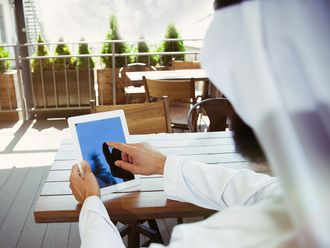Preparations for the ninth Arab Energy Conference, which will be held in Doha on May 9 to 12, are well under way. The conference, which is held every four years, is expected as usual to be well-attended. It is sponsored and organised by the Organisation of Arab Petroleum Exporting Countries (OAPEC), the Arab Fund for Economic and Social Development and a number of Arab League organisations involved in energy or oil and gas-related industrial development.
It is the largest energy gathering in the Arab world and is usually observed by global organisations as well as other nations. Since the last conference in Amman four years ago, there have been major changes in the international and regional energy scene that are sufficient to make the upcoming conference very important and lively in dealing with: energy resources, consumption and conservation, environment and sustainable development, investment in upstream and downstream development, regional markets and energy institutions in addition to the conference's theme this year which is Energy and Arab Cooperation.
New angle
The demand for energy in the Arab world is driven by economic growth, population increase and urbanisation and has grown from about 8.2 million barrels of oil equivalent per day (MBOED) in 2004 to just over 10 MBOED in 2008. As far as oil and gas exports are concerned, the growth is from 21.5 MBOED in 2004 to 23.2 MBOED in 2008 where exports are mostly oil and oil products and gas contribution is on the increase.
These numbers reflect the importance of oil and gas in the Arab energy scene and that is why the conference is expected to concentrate so much on these resources not only with respect to production, consumption and exports of oil and gas but also with respect to refining and petrochemicals. The Arab refining capacity, which currently stands at about seven mbd, could come close to 10 mbd in the next five years. The recent trend of building complex refineries to produce more of the in-demand light products and the integration with the petrochemical industry is likely to increase.
There is a new angle that, to the best of my knowledge, has never been discussed in previous conferences. The recent interest in nuclear energy shown by many Arab countries for electricity generation will be discussed in a special session. The highly advanced nature of nuclear technology and the cost associated with it is worthy of an exchange of views and most importantly there is a need for some form of coordination among Arab countries aimed at cooperation, cost reduction and the avoidance of repetition of programmes.
No doubt the local and international environmental debate will have its share in the conference. Petroleum products specifications are changing for the better in the Arab world, generally for reasons related to local air quality and to preserve export markets for petroleum products. At the same time some Arab countries are very concerned about the climate change debate as they try to preserve the rights of oil and gas producers' interests in international agreements.
Plan of action
The theme of the conference really needs to be translated into a plan of action to show something tangible on the ground. There haven't been many bilateral or joint Arab projects in the last 20 years and the exuberance of the 1970s and early 1980s for such projects should be revived. The Arab world should take a cue from other more successful regional groupings to enhance its chances in this very competitive world and to aspire to more economic integration as a major step towards unity.
The writer is former head of Energy Studies Department, Opec Secretariat, Vienna.












